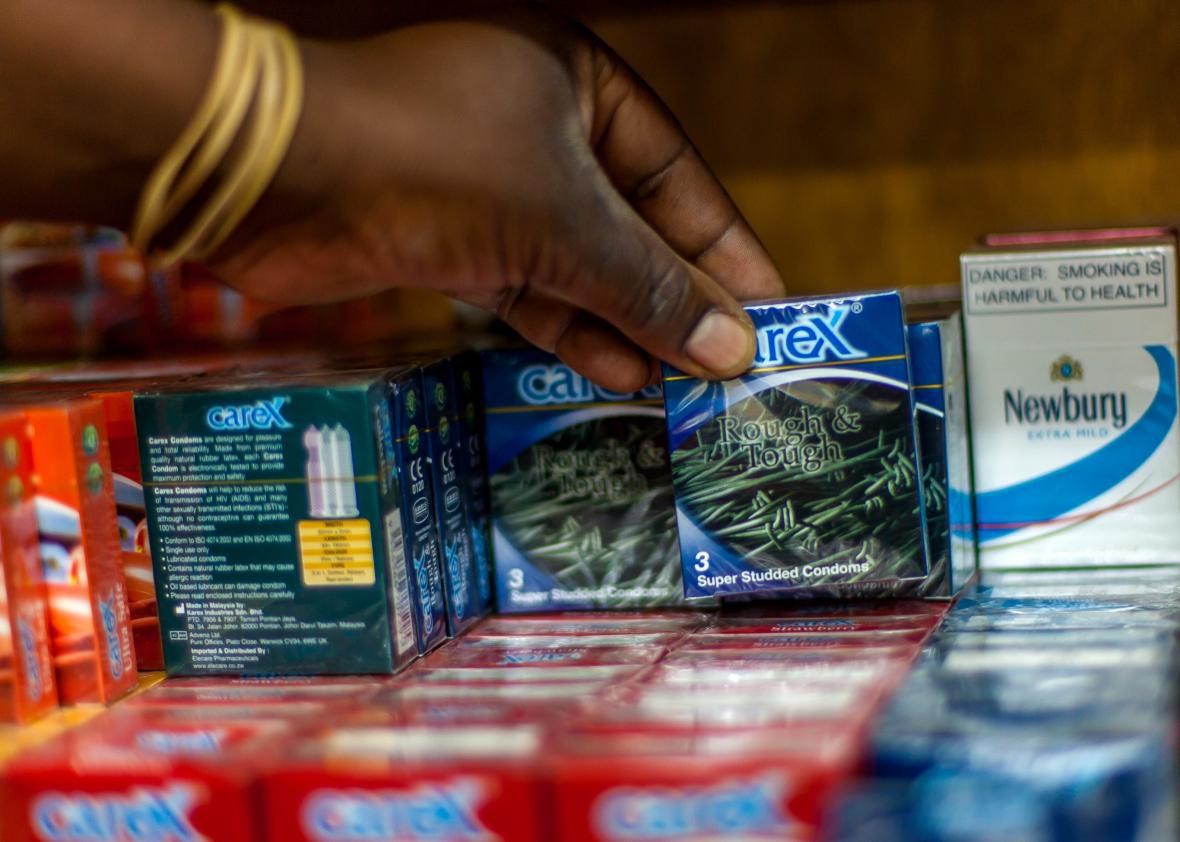About 214 million women of reproductive age in developing nations want to postpone or prevent pregnancy but are not using modern contraception, according to a study from the Guttmacher Institute published Thursday. This represents one-quarter of all such women who want to avoid pregnancy, a substantial decrease from the 225 million women in developing regions estimated to have unmet contraceptive needs in 2014.
These women, the majority of whom live in Southern Asia and sub-Saharan Africa, account for 84 percent of all unintended pregnancies in developing countries. If they had access to contraception, Guttmacher estimates, unintended pregnancies in these regions would shrink from 89 million to 22 million per year, and induced abortions would drop from 48 million to 13 million per year.
Currently, supplying the 671 million women who use modern contraceptive methods in developing regions costs $5.5 billion a year, about 88 cents per woman. To close the 214 million–woman gap, which includes 59 million women who use traditional methods such as the rhythm method or withdrawal, donor governments and health organizations would have to double that figure.
But that’s nothing compared to the costs of letting hundreds of women who want to avoid pregnancy go without adequate contraceptive care. Guttmacher estimates that for each dollar invested in expanded contraception access, global health funds would save $2.30 that would have otherwise been spent on care for unintended pregnancies.
Contraception access is essential to both women’s personal economic security and the economic solvency of developing countries. It’s impossible to address global poverty without giving women the ability to prevent or space out pregnancies, allowing them to earn and save more money, give their children better education opportunities, and depend less on government assistance. “No country in the last 50 years has emerged from poverty without expanding access to contraceptives,” the Gates Foundation noted in its annual letter earlier this year.
Lack of access to birth control also has dire consequences for the health and survival of women and infants. When women can space out their pregnancies by at least three years, their children are twice as likely to live to see their first birthdays and their bodies are better able to endure the strains of pregnancy and childbirth. Contraception allows young women to postpone pregnancy until their bodies are fully developed, too. The Guttmacher report states that, with fully met contraceptive need in developing regions, an estimated 76,000 fewer women would die from childbirth-related causes each year.
The Trump administration is currently doing all it can to stymie global efforts toward better contraceptive access and maternal health care. Previous Republican presidents have cut U.S. family-planning aid from all foreign organizations that so much as discuss abortion with the people they serve, but Trump has expanded the so-called global gag rule to cover all U.S. foreign aid: $8.8 billion, including funds that go toward HIV/AIDS prevention and child health programs. Since the U.S. is the world’s largest government provider of global health aid and provides an enormous proportion of the developing world’s contraceptive supplies, millions of women who currently rely on reproductive health organizations funded by U.S. aid will lose access to their means of preventing pregnancy.
We can confidently predict the catastrophic outcome of Trump’s beefed-up global gag rule by looking at substantial historical precedent. After George W. Bush signed a global gag rule with a smaller scope in 2001, rates of unintended pregnancy and abortion spiked in sub-Saharan Africa, where women had previously depended on U.S.-funded contraception. Sixteen developing countries around the world lost access to all their USAID-funded contraceptives, because they were distributed through the International Planned Parenthood Federation, which provides abortion care. Millions were forced to resort to less effective traditional methods of birth control, or none at all. These women lost their reproductive autonomy, their ability to determine the courses of their own lives, and their best shot at greater economic independence—all for a feel-good moment for the U.S. GOP.
